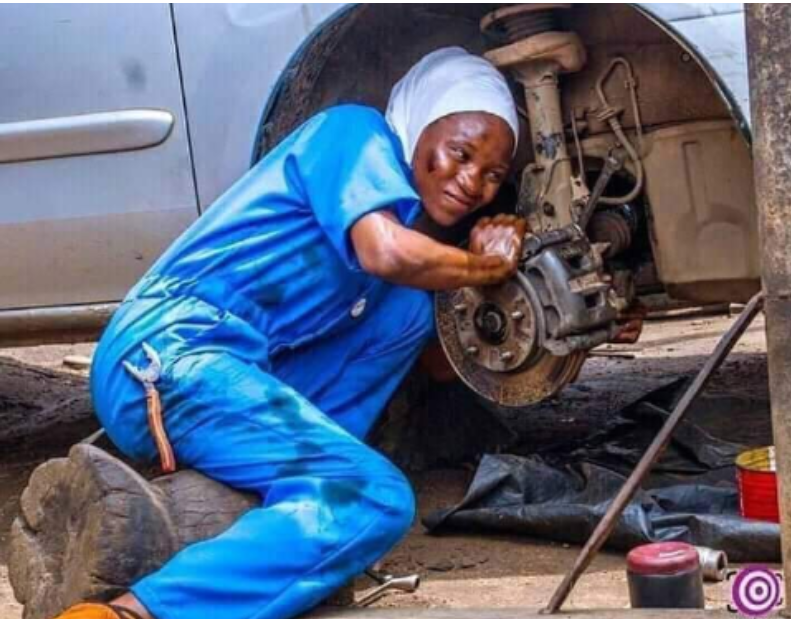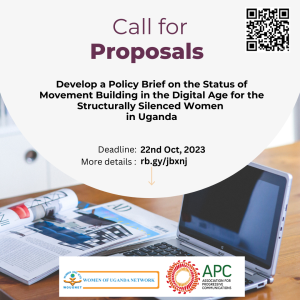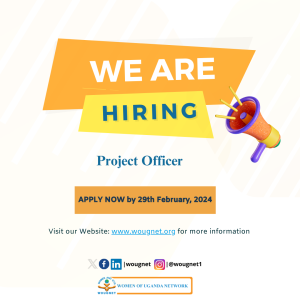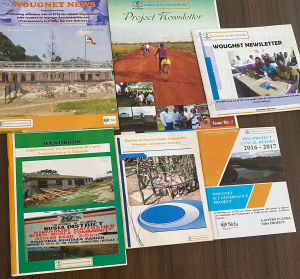The saying goes, “behind every successful man, there is a woman” however many men are still blind about women’s values.
Over the past decade, women have been restricted from a lot of opportunities. This has been constructed on cultural values, norms, beliefs plus the prevailing stereotypes on women. For instance, globally women are believed to be weak, submissive, emotional, inferior and that they do not think among other stereotypes. These are constructed within a couple of institutions such as households, schools, workplaces, culture, the media, and religion plus the community at large. Women are denied equal access to the decision making process at home and even at workplaces. They have limited opportunities to education, access to technology and control over the property which is of more emphasis because property inheritance is in favor of a boy child as usually being the heir in African culture.
Different strategies have been employed in the private and public spheres by the Ugandan government to advocate for women’s issues and the unsatisfactory treatment imposed on women. These among many include; the girl child education by the government of Uganda through Universal Primary Education (UPE) Universal Secondary Education (USE) and affirmative action in joining the university and parliamentary seats.
There is support from Non-Governmental Organization (NGOs) for instance Women of Uganda Network (WOUGNET) which is innovatively empowering women to use ICTs for social change by conducting Digital literacy training to ensure more women access and use the internet for development purposes and deconstruct the stereotypes on technology usage by women. UWONET, FOWODE, ACFODE, AMWA, MEMPROW among other Women’s Rights Organizations have played a tremendous role.
A number of women have been great examples in implementing the role and importance of women in challenging stereotypes imposed on them. For example;
The Deputy Speaker of parliament Hon. Rebecca Kadaga, a lawyer and politician. She made history when the 9th parliament overwhelmingly supported her bid for speaker and elected her to become the first Ugandan woman to occupy the position of a speaker. In this, a woman was able to compete for the same position as a man which has increased the visibility of women in politics in Uganda. In addition to the 30 percent of reserved seats for women in the Ugandan parliament to increase women’s participation in politics and public spheres. Her victory was viewed as an indicator of her capabilities, competence, determination, and confidence which is an inspiration to many young women. With Kadaga as the speaker, Uganda has achieved much desired enhanced integration of critical gender issues into laws, policies, budgets, and legislative debates. She has contributed to women’s empowerment through her involvement in the national campaigns on raising awareness on cervical and breast cancer, ending female genital mutilation and among others.
In media we have Ms. Maria Kiwanuka, who launched and headed radio one FM 90, opened Akaboozi Ku Bbiri 87.9 FM, and created a YouTube channel for Radio One making it the first radio station in Uganda to incorporate online programming. She also broke the stereotypes that men are the initiators and innovators in the field of technology. https://www.monitor.com.ug/national
There are other women and men who have worked tooth and nail to uplift the status of other women through sensitization, counseling, and guidance. This is evident in the current incident of the passing away of former Uganda’s prime minister prof Apollo Nsibambi. He held positions such as the first non-head of state chancellor of Makerere University, Minister of Education and Public service, Dean of the Faculty of Social Science (MAK) among others.
With all the positions he held to honor and integrity and discovered a lot of potential in a girl child thus he ended up choosing one of his daughters to be the heir.
“This was not a secret, daddy used to talk about it openly that one of his daughters would be his heir and that the heir will be initiated in the church”, Juliet Kasujja Nsibambi youngest daughter of the deceased proved.
This was a shock to some individuals for example in Buganda and other cultures, it is not common for a girl to be an heir to her father’s property and unusual to the Fumbe clan to which he belonged. But this was not the case to his family and friends.
This was again supported by religious leaders as Namirembe cathedral Dean, Rev Benon Kityo proved the congregation that the Bible okays daughters to be heirs to their fathers and quoted the book of Numbers chapter 27:8 &9. https://www.independent.co.ug/ap…
This proved that men like women have the same ability to attend to different opportunities and responsibilities assigned to them so women should be given a chance to exercise their potential. It also places women in public spheres and at the forefront of the country’s development. Still, the late’s choice calls for equal observation of humanity that is in individual capabilities and potentially more than focusing and basing on the gender, culture and its related issues like norms, beliefs, values, behaviors, and customs. This has positively impacted on the work of women, women activists, feminists, Women’s Rights Organizations and other NGOs.
We should all stand up in reconstructing, challenging and breaking the cultural norms, beliefs, values and the prevailing stereotypes imposed on women as a sign of oppression through introduction of women into public spheres, inclusion of women in top positions and responsibilities while observing to discover their potential than being formal and objective in cultural related issues.
“What a man can do, a woman can do it better”
Compiled by:
Florence Nalukwata- Intern Gender & ICT






